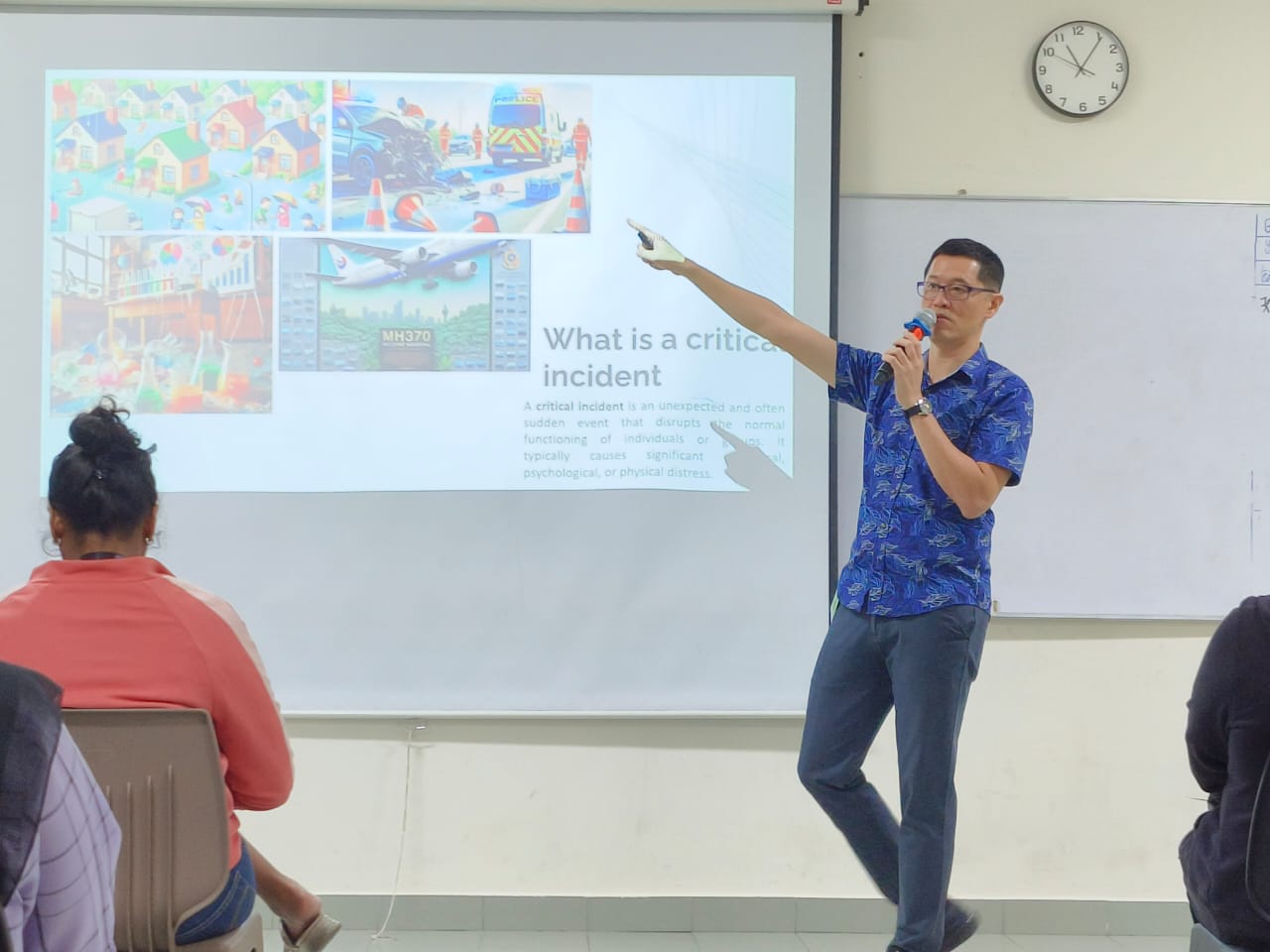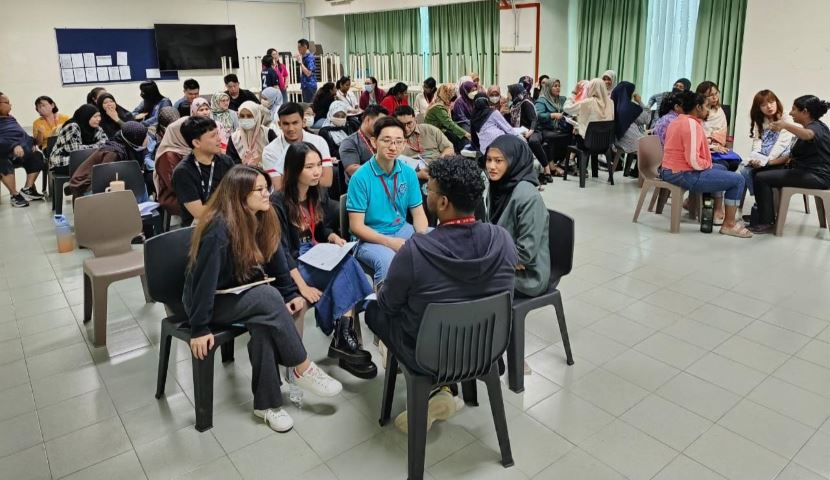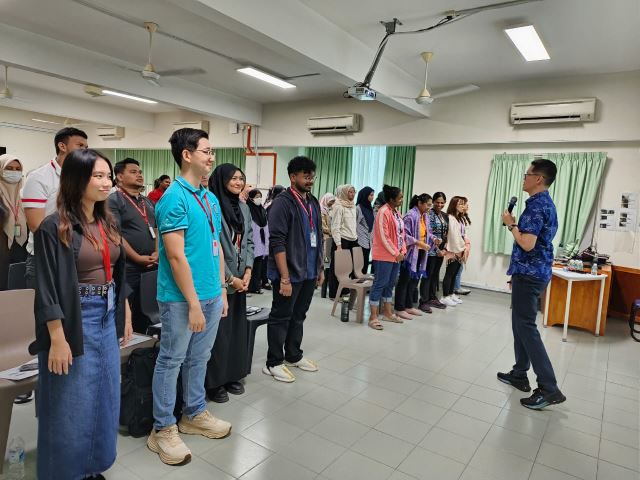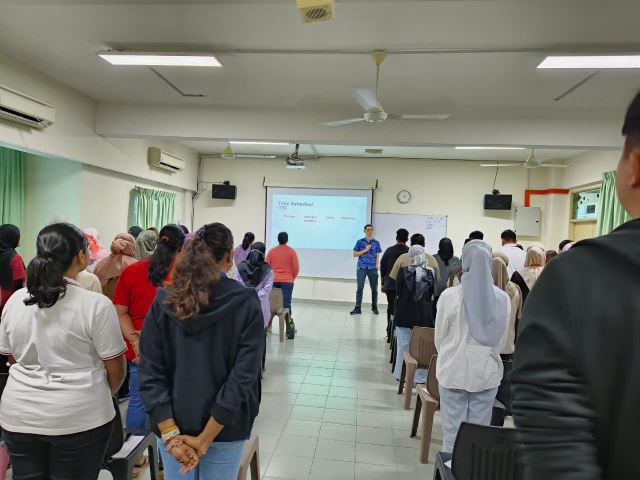Crisis Incident Management: Caring for Others and Self
(Empowering Educators: Professional Development Program (2) for Teachers)
By Guganeswary Vellayan
English Teacher
On January 11, 2025, a “Crisis Incident Management: Caring for Others and Self” workshop was held at Kuen Cheng High School, Kuala Lumpur, from 11:00 AM to 12:30 PM. Mr Raymond Lee Kok Han from HELP University was invited to give the talk. Mr Raymond Lee holds a Master’s Degree in Counseling from HELP University and a Bachelor’s Degree in Mechanical Engineering from Universiti Sains Malaysia. This workshop was targeted at non-Chinese-speaking teachers. It was conducted in both English and Malay languages.

Photo 1: Mr Raymond Lee highlighted the purpose and advantages of learning Crisis Incident Management.
It is important for teachers to equip themselves with the necessary skills and knowledge to effectively respond to emergencies, ensuring the safety and well-being of teachers, students and
staff. Here are some key purposes for learning Crisis Incident Management:
1. Ensuring safety and protection
2. Minimising panic and confusion
3. Responding to various emergencies
4. Enhancing communication and coordination
5. Developing prevention strategies
6. Building psychological resilience
7. Boosting confidence and leadership

Photo 2: Teachers sat in groups and shared their experiences of dealing with crisis incidents that happened in their lives.
One of the best sessions in the workshop was when the teachers were asked to sit together in small groups and share their personal experiences of critical incidents that happened in their
lives. This activity allowed the teachers to open up and share their experiences of dealing with crises, simultaneously creating a bond among the teachers, as seen in the picture above.

Photo 3: Mr Raymond Lee requesting the teachers to visualise while explaining the Total Behaviour (TB) in Choice Theory.

Photo 4: Teachers actively engaged in the workshop and enjoyed the activities thoughtfully designed.
